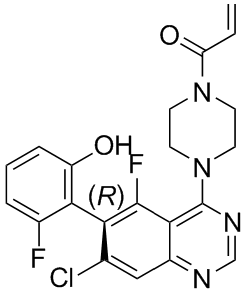Moreover, patients with defective TGF��RII present significantly more colon polyps and preneoplastic lesions than patients with normal TGF��RII. Lu and co-workers, report that the expression of TGF��RII significantly decreased when they observed normal tissue, tissue adjacent to cancer and gastric cancer. Early reports indicate that  most PC become resistant to the anti-proliferative effects of TGF��1 without defined mutations or deletions in members of the Smad signaling pathway. More recently, Rojas and co-workers showed that TGFBR2 expression levels can affect the ability of TGF��1 to induce p21 and apoptosis in the V-400 colorectal cancer cell line. Furthermore, cancers that do not demonstrate mutations in any TGF��1 signaling cascade members, show down-regulated levels of TGFBR2, demonstrating the oncogenic potential of TGF��1 pathway. In the PC3 cell line, which is CR, the AR expression reduces TGF��1/SMAD transcriptional AbMole Nodakenin activity and the growth effects of TGF��1, thus preventing growth inhibition and apoptosis. According to Bruckheimer and coworkers, the treatment of LnCaP cells, that overexpress TGF��RII, with TGF��1 in the presence of DHT, can enhance the cell cycle arrest and apoptosis, through caspase-1 activation and the targeting of BCL-2. It is evident that TGF��1 signaling requires a delicate balance of interactions within the cellular and tumoral microenvironment. Deregulation of TGFBR2 expression levels and of the inhibitory SMAD7 could influence the normal cellular homeostasis and also influence cancer progression. We previously demonstrated that changes in the tumoral microenvironment can modulate PC progression with impact in response to ADT. Seijo and co-workers observed, in normal epithelial cells, that the A-to-G transition at the -875 position enhances the activity of TGF��RII, with higher luciferase activity in the presence of the A allele. Our results also suggest that the TGFBR2-875G>A polymorphism could influence the circulating expression levels of TGFBR2 in PC patients. We observed that TGFBR2-875>AG/AA patients carriers present a higher expression levels of TGFBR2 mRNA than GG homozygous and that up-regulation may be responsible for the TGF��1 signaling pathway up-regulation, inducing the cell cycle arrest and apoptosis, and consequently causing these patients to present a higher progression free-interval after the beginning of ADT. In fact we also observed that TGFBR2-875GG homozygous, which present lower circulating levels of TGFBR2 mRNA, present a higher risk for the development of tumors with higher Gleason score. In GG homozygous carriers, the lower expression levels of TGFBR2 may be associated with cellular disruptions in the TGF��1 signaling pathway and induces the acquisition of aggressive cancer phenotypes. TGFBR2-875>G/A has been the subject of investigation in several case�Ccontrol studies involving different types of cancers, with controversial results.
most PC become resistant to the anti-proliferative effects of TGF��1 without defined mutations or deletions in members of the Smad signaling pathway. More recently, Rojas and co-workers showed that TGFBR2 expression levels can affect the ability of TGF��1 to induce p21 and apoptosis in the V-400 colorectal cancer cell line. Furthermore, cancers that do not demonstrate mutations in any TGF��1 signaling cascade members, show down-regulated levels of TGFBR2, demonstrating the oncogenic potential of TGF��1 pathway. In the PC3 cell line, which is CR, the AR expression reduces TGF��1/SMAD transcriptional AbMole Nodakenin activity and the growth effects of TGF��1, thus preventing growth inhibition and apoptosis. According to Bruckheimer and coworkers, the treatment of LnCaP cells, that overexpress TGF��RII, with TGF��1 in the presence of DHT, can enhance the cell cycle arrest and apoptosis, through caspase-1 activation and the targeting of BCL-2. It is evident that TGF��1 signaling requires a delicate balance of interactions within the cellular and tumoral microenvironment. Deregulation of TGFBR2 expression levels and of the inhibitory SMAD7 could influence the normal cellular homeostasis and also influence cancer progression. We previously demonstrated that changes in the tumoral microenvironment can modulate PC progression with impact in response to ADT. Seijo and co-workers observed, in normal epithelial cells, that the A-to-G transition at the -875 position enhances the activity of TGF��RII, with higher luciferase activity in the presence of the A allele. Our results also suggest that the TGFBR2-875G>A polymorphism could influence the circulating expression levels of TGFBR2 in PC patients. We observed that TGFBR2-875>AG/AA patients carriers present a higher expression levels of TGFBR2 mRNA than GG homozygous and that up-regulation may be responsible for the TGF��1 signaling pathway up-regulation, inducing the cell cycle arrest and apoptosis, and consequently causing these patients to present a higher progression free-interval after the beginning of ADT. In fact we also observed that TGFBR2-875GG homozygous, which present lower circulating levels of TGFBR2 mRNA, present a higher risk for the development of tumors with higher Gleason score. In GG homozygous carriers, the lower expression levels of TGFBR2 may be associated with cellular disruptions in the TGF��1 signaling pathway and induces the acquisition of aggressive cancer phenotypes. TGFBR2-875>G/A has been the subject of investigation in several case�Ccontrol studies involving different types of cancers, with controversial results.